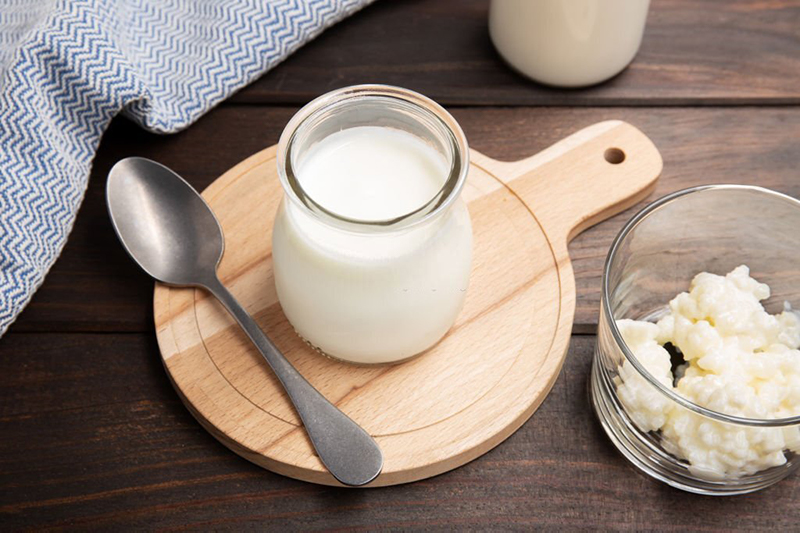What exactly is kefir?
Kefir is a fermented milk drink that originated in the hilly region that separates Asia and Europe. It has a consistency similar to yogurt but is thinner, making it more of a drink. Due to carbon dioxide, a byproduct of the fermentation process, kefir has a tangy, sour flavor and a subtle ‘fizz.’ The flavor is determined by the length of fermentation. Kefir is high in probiotic microorganisms and a good source of calcium. probioticseverything.comprobiotic kefir
What are the four most important health advantages of kefir?
1. It aids digestion.
Kefir has been shown to aid digestion in certain people, possibly due to its microbial content. Probiotics may aid in the restoration of intestinal equilibrium, hence aiding digestion. probioticseverything.comprobiotic kefir
Because the fermentation process also aids in the breakdown of lactose in milk, there is some evidence that lactose intolerance sufferers may tolerate kefir. However, if you suspect you may be lactose intolerant, you should consult your doctor. probioticseverything.comprobiotic kefir
If you have a confirmed condition like inflammatory bowel disease (IBD) or irritable bowel syndrome (IBS), talk to your doctor or a nutritionist before eating fermented foods because they can aggravate symptoms in some situations. probioticseverything.comprobiotic kefir
2. It might help you lose weight.
Obesity has been linked to a bacterial imbalance in the gut. However, it’s unclear which bacteria strain has an effect. Some data suggests that the lactobacillus species, or LAB group, found in kefir, are linked to weight loss, but additional evidence is needed before any recommendations can be made. probioticseverything.comprobiotic kefir
Other evidence, on the other hand, contradicts these findings, claiming that probiotics have no effect on weight loss or BMI. Clearly, further research is needed in this area. probioticseverything.comprobiotic kefir
3. Helps to maintain bone health
Calcium and vitamin K are both vital for bone health, and traditional kefir prepared from cow’s milk is an excellent source of both. Our bones weaken as we get older, increasing our risk of osteoporosis and fractures, especially in postmenopausal women. Kefir, like other dairy products, is a good source of calcium in the diet. probioticseverything.comprobiotic kefir
4. It helps to reduce inflammation.
Inflammation plays a role in a variety of disorders, including inflammatory bowel disease (IBD) and rheumatoid arthritis (RA). Although this is a new area of research, probiotics have been shown to have anti-inflammatory and immunomodulatory benefits in several trials. Although the LAB bacteria appear to be anti-inflammatory, it is unclear whether this transfers to kefir. probioticseverything.comprobiotic kefir
Are there any negative consequences?
Because the procedure for making kefir varies between manufacturers, it’s difficult to keep track of its potency, thus some products may have more probiotic bacteria than others. Start with a little amount of probiotics or fermented foods if you’re not used to them and gradually increase. When introducing fermented foods to the diet, some persons experience digestive problems such as bloating, constipation, or diarrhoea. Before introducing or increasing their fermented food intake, anyone with a damaged immune system or a histamine intolerance should consult a health expert. probioticseverything.com

